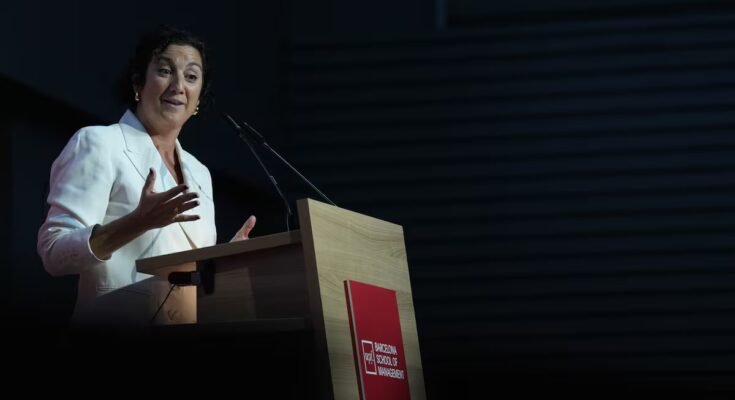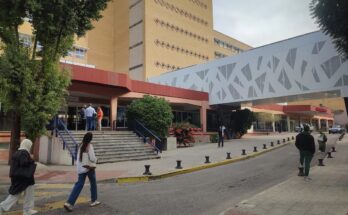The Generalitat of Catalonia expects to receive up to 5,000 million additional euros with the new financing, as the Minister of Economy, Alícia Romero, explained on Tuesday. In the aftermath of the Fiscal and Financial Policy Council (CPFF) meeting, the head of the Treasury portfolio assured in an interview with TV3 that the final amount will depend on the appropriate demographic criterion chosen by the central government, which would end up specifying an extra financing figure of between 3,800 and 5,000 million euros.
Romero expressed confidence that the new financing model will imply an injection of between 17 and 18 billion euros into the system of the common regime of the autonomous communities. “We would be between 3,800 and 5,000 million for Catalonia. We will have to see the population’s adjustment. It is very important”, he added, without specifying which of the latter’s formulas, in his opinion, will be taken into consideration. Weeks ago, Esquerra Republicana reported that the central government’s Ministry of Finance had opted for a calculation that took into account a population lower than the current one.
All in all, Romero is convinced that the financing project will include the principle of ordinality (“We are the third community to contribute and the tenth to receive. Guys, we would like us to be a little more balanced”, he said), greater co-responsibility in the management of taxes and financial sufficiency, taking into account, for example, the difference in assumed powers that the different territories have. This point would correspond to the Government’s desire to respond to territorial singularities (that of the Canary Islands, for example, or the fact that Catalonia has relocated the police and prisons) with a uniform improvement in the financing of common powers.
Vice President María Jesús Montero’s commitment is that in approximately two months the model will be brought back to the CPFF for approval. In that forum, the sum of the votes of the central government and the Generalitat gives the majority. Another thing is the trial in the Cortes, where without the sure vote of Junts and the fierce opposition of PP and Vox it would be impossible to move forward.
“I think politicians need to be pragmatic and stop playing politics. We need to think about our people and our territory. Yesterday an opportunity opened up and everyone will then have to explain their vote. And I hope that the citizens will then take charge of them,” said Romero, after regretting that the autonomies of the PP, at the same time, complain about the main beams of the new model but on the other hand insist on the need to update a model that already expired in 2014.
As for the question of whether Catalonia is in favor of penalizing autonomies that lower taxes, Romero was more in favor of creating a limit on tax reductions, with the central government setting a minimum threshold for reductions. This would allow, he defended, to avoid “unfair competition”.
The Catalan parties welcomed the announcement made at the CPFF with varying enthusiasm. Especially since this progress depends, among other things, on the arrival of the green light for negotiations on the Generalitat’s budget for 2026. “Financing is the backbone of the investiture agreement and conditions everything else. To open new files, we must close those that are still open”, said Ester Capella, Esquerra’s spokesperson in Parliament. Republicans welcome Montero’s proposed two-month margin. “We won’t be in a hurry to make a bad deal. If we have to sit at the table multiple times to do it, we will,” he added.
The PSC, which sees a future budget negotiation postponed over time, took advantage of the management of the Government’s commitments acquired with the ERC. “They are happening, we are on the right path and the necessary issues are being addressed. Sooner or later the negotiation of the budgets for next year will begin,” said the Socialist spokesperson in Parliament, Elena Díaz.
From the ranks of the House of Commons, David Cid called for an end to the funding freeze. “We hope that Junts and the PP do not put any brakes and we urge them to stop being a party of ‘NEETs’, who do not defend fiscal fairness nor want to protect public services in Catalonia,” he criticized.
And Junts, in fact, defined the proposals announced by Montero as “recentralising, restrictive and which do not improve Catalonia’s financial capacity”. MP Antoni Castellà underlined that of the 22 billion that the Catalans pay to the state, “not a single euro” is returned. For Junts, the funding model that the vice president defined as “homogeneous but specific to communities with specific skills” is the same as the current one.



